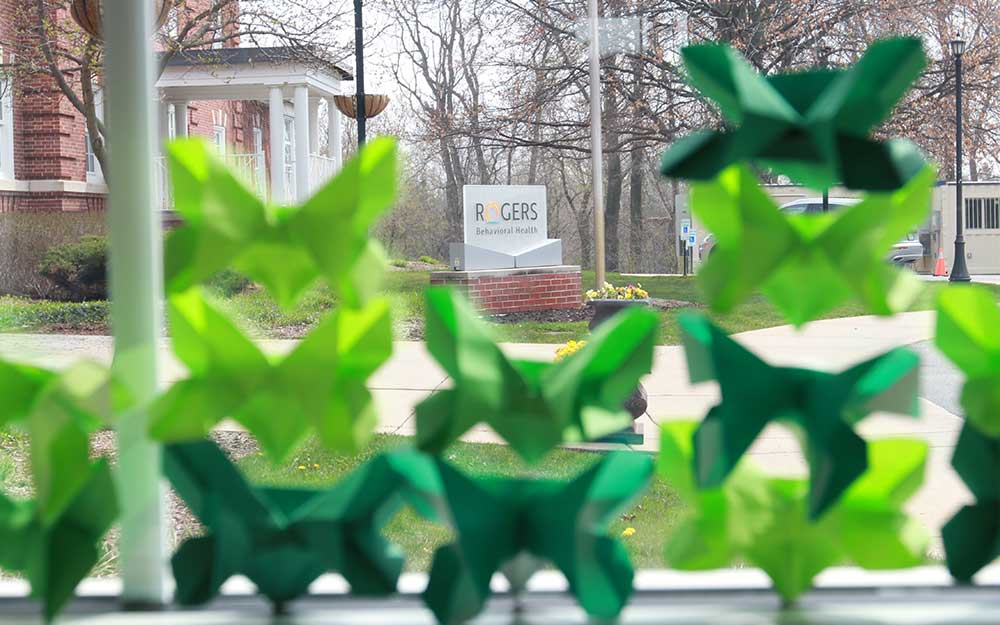Two patients in Rogers’ Eating Disorder Recovery adolescent residential care recently created 1,000 butterflies as a message of hope to others who are struggling.
“The butterfly is a symbol for eating disorder recovery,” explains Mike Hoelzer, experiential therapist at Rogers.
The teens merged the Japanese tradition of making senbazuru, a thousand paper cranes, with the butterfly. Origami cranes are traditionally given to a person who is seriously ill to wish for their recovery. They are created by friends or colleagues as a collective effort and are often donated to temples to pray for peace. The paper art is left exposed to the elements, becoming tattered and dissolving as symbolically, the wish is released.
The Butterflies of Hope project began in an art therapy group where Mike and the patients first discussed and developed the idea. After the patients became more motivated, they took complete ownership of the project and completed it on their own.
“This project parallels my philosophy of art therapy, to offer initiatives that patients will want to take ownership of and continue as part of their life in recovery,” adds Mike. “The patients decided to make a window art installation to showcase their work.”
It took a total of about two weeks for the patients to complete the project, even working on weekends.
“It’s so rewarding to see how proud the patients are of themselves,” notes Mike. “The goal of this project was to help them build hope and self-esteem. It also has fostered a sense of hope in the Rogers community, as the butterflies can be seen when staff and residents are walking the grounds.”
As the two patients explain, “It’s a connection to all of the Rogers patients, how we all flow through our challenges, and how in the end, we will all soar out of here and fly away in beautiful colors.”
If you or someone you know is struggling with an eating disorder, submit a free, confidential screening, or call us at 800-767-4411.
If you do not feel you or your loved one needs treatment right away, but may be concerned, we offer online quizzes to possibly provide some relief. While these quizzes do not provide a diagnosis, it could be the first step in finding the treatment you may need. Take our online Eating Disorder Quiz today.


